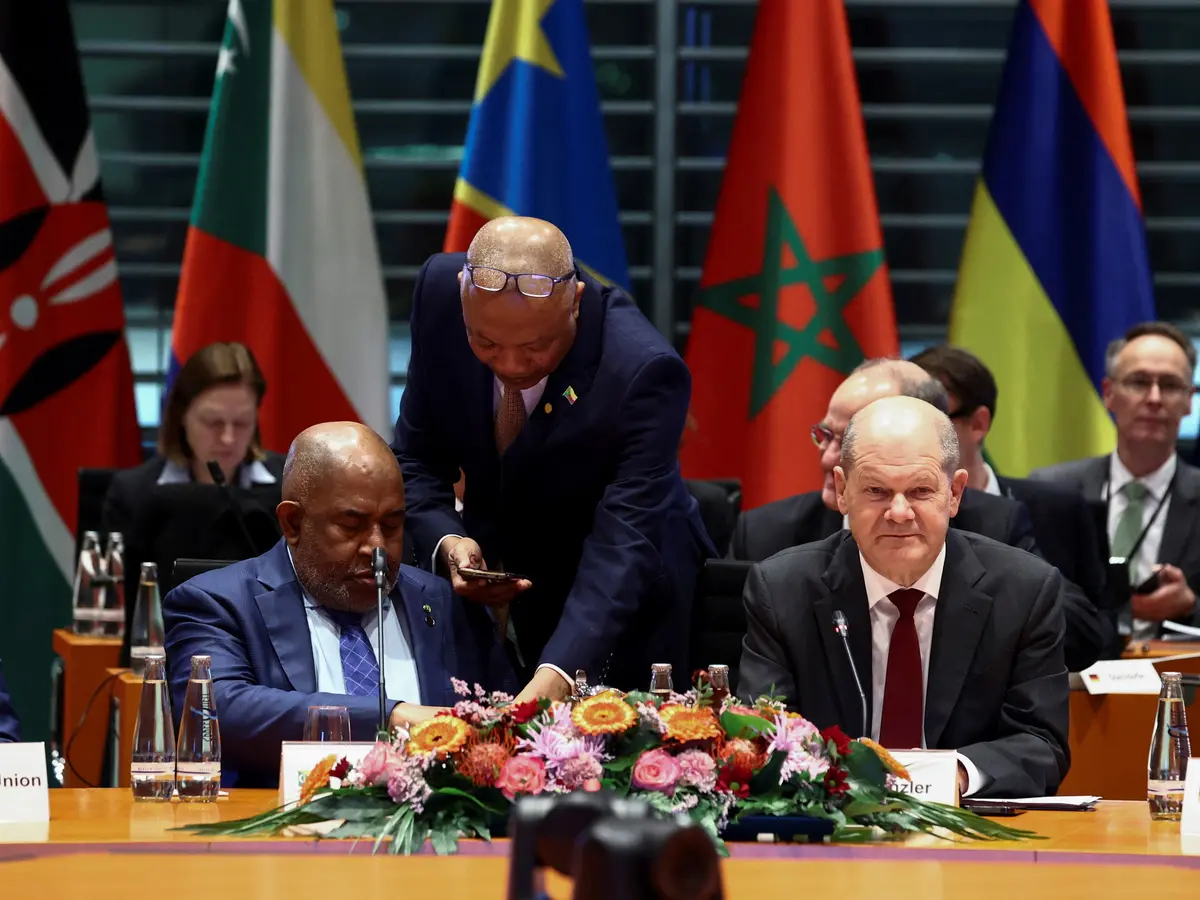Chancellor Olaf Scholz announced a groundbreaking commitment of 4 billion euros to invest in sustainable energy projects in Africa by 2030.

Chancellor Olaf Scholz announced a groundbreaking commitment of 4 billion euros to invest in sustainable energy projects in Africa by 2030.
This pledge, unveiled during the Compact with Africa (CwA) summit in Berlin, aims to bolster Africa’s role in renewable power, green hydrogen production, and critical raw material extraction.
Strategic Investment in Clean Energy:
Germany’s commitment aligns with the Africa-EU Green Energy project, reflecting a departure from traditional development aid. The investment aims to foster mutually beneficial economic partnerships, emphasizing the economic potential of the African continent.
Focus on Green Hydrogen Production:
Chancellor Scholz highlighted green hydrogen production as a key focus area during the summit. Germany encourages African nations to engage in green hydrogen production, ensuring reliable buyers and reinforcing the importance of Africa in the global supply chain for synthetic fuels.
Inclusive Job Opportunities:
Acknowledging the shortage of skilled labor in Germany, Scholz welcomed African workers to fill vacant positions, particularly in the energy sector. Plans include strengthening laws on attracting skilled labor and establishing migration partnerships with African nations to facilitate a smoother exchange of talent.
Reducing Impediments to Growth:
Germany aims to address major impediments to growth in Africa, including political instability, currency inconvertibility, and financial reassurances for investors. The CwA will leverage credit guarantees and other instruments to tap into Africa’s economic growth potential.
Long-Term Value Creation:
Unlike China’s resource extraction model, Germany seeks to create a platform for long-term value creation within African states. The goal is to promote sustainable technologies, with a focus on industries such as battery and steel production.
Green Energy Export Strategy:
The CwA aims to overcome challenges in clean energy investments, such as higher costs, by encouraging the export of green energy. By securing stable customer bases through international trade, the initiative aims to attract more investors to the African clean energy sector.
Infrastructure Projects:
Germany’s commitment extends to specific projects, including a geothermal energy project in Kenya, grid expansion and decentralized power production in Nigeria, and wind and solar power projects in Morocco.
African Integration and Structural Change:
The CwA is seen as a platform for achieving indispensable structural change in Africa. African Union (AU) leaders emphasize the potential for the initiative to act as a catalyst for integration, similar to a “Marshall Plan,” fostering development and convincing young Africans to contribute to their home countries’ growth.
Education for Sustainable Economic Development:
Germany’s Development and Economic Cooperation Minister, Svenja Schulze, highlighted the importance of education for sustainable economic development. The CwA will focus on initiatives promoting better education for young Africans, emphasizing the role of digital entrepreneurs and startups in driving social-ecological transformation.
Germany’s ambitious commitment of 4 billion euros signifies a paradigm shift in its approach to Africa, emphasizing collaboration, sustainability, and long-term economic partnerships. The CwA summit serves as a pivotal moment in shaping the trajectory of Africa’s role in global clean energy and economic development.